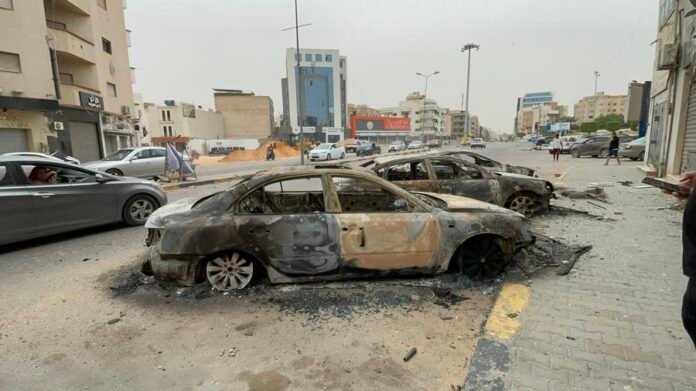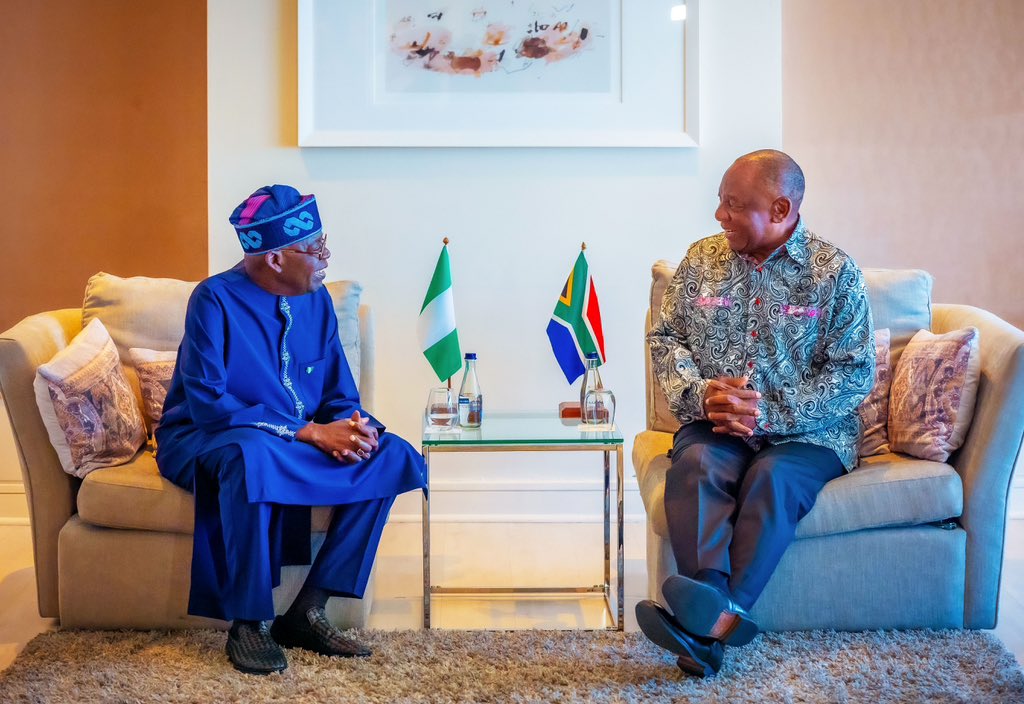A fragile calm has returned to Tripoli, Libya, after a sudden eruption of violence earlier this week. The fighting left parts of the city devastated and resulted in civilian deaths.
This recent surge in conflict has intensified worries about the stability of Libya’s already precarious political and security situation.
Clashes erupted across several districts within the Libyan capital at the beginning of the week. Reports indicate that the violence was triggered by the killing of a prominent militia leader.
The intense fighting involved the use of heavy weaponry in densely populated residential areas. This forced hundreds of families to flee their homes in search of safety. Local hospitals faced significant strain as they dealt with the influx of casualties.
International Calls for Ceasefire and Dialogue
UN Secretary-General António Guterres has called on all involved parties to take immediate steps to solidify the ceasefire that was announced on Wednesday. “The rapid nature of the escalation, which drew armed groups from outside the city and subjected heavily populated neighbourhoods to heavy artillery fire, was alarming,” his spokesperson stated on Thursday.
“The Secretary-General reminds all parties of their obligation to protect civilians and calls on them to engage in serious dialogue in good faith to address the root causes of the conflict.”
The UN Support Mission in Libya (UNSMIL) consistently issued warnings throughout the week. They described the situation as “deeply alarming” and urged an “immediate, unconditional ceasefire.”
On Wednesday, UNSMIL stated, “Attacking and damaging civilian infrastructure, physically harming civilians, and jeopardizing the lives and safety of the population may constitute crimes under international law,” while also acknowledging the mediation efforts undertaken by community elders and civil society leaders.
Years of Political Division and Oil Wealth Competition
Libya has been fragmented for nearly fifteen years, following the fall of Muammar Gaddafi in 2011 and the emergence of rival administrations in 2014. The internationally recognized Government of National Unity (GNU) is based in Tripoli in the northwest, while the Government of National Stability (GNS) operates in Benghazi in the east.
Competition for control over Libya’s substantial oil wealth further complicates the already volatile situation. Despite the country’s oil production exceeding one million barrels per day, the living conditions for ordinary Libyans have shown little improvement.
ICC Investigation and Pursuit of Accountability
In New York on Thursday, the Prosecutor of the International Criminal Court (ICC) announced a new phase in its investigation into alleged war crimes committed in Libya. This follows increased cooperation from authorities within the country.
Briefing the UN Security Council from The Hague, ICC Prosecutor Karim Khan described “an unprecedented six months of dynamism.” He cited the January arrest of Osama Elmasry Najim, a commander in the now-disbanded Special Deterrence Force (RADA), and his subsequent controversial return to Libya.
Mr. Khan’s briefing to Ambassadors occurred via video link after the United States imposed sanctions on the court, including senior personnel, threatening them with arrest if they travel to the US.
This US action was in response to the ICC issuing arrest warrants for the Israeli Prime Minister and former defense minister in November of the previous year. Mr. Najim was apprehended by Italian authorities based on an ICC warrant.
War Crimes Alleged In Libyan Dispute
The charges against him include war crimes and crimes against humanity related to abuses at Metiga Prison. However, his return to Libya was a matter of significant concern, according to Mr. Khan.
“There was real dismay and disappointment among victims that Mr. Njeem was returned to the scene of the alleged crimes,” Mr. Khan said. Despite this setback, he said that the arrest warrant had sent “shockwaves” through Libyan militias and alleged perpetrators, indicating a growing understanding that “the rule of law has entered the territory of Libya.”
He confirmed that more arrest warrants are being pursued and that the ICC has responded to a request for assistance from the UK’s National Crime Agency as part of their investigation into Mr. Najim. “There is a black box of suffering in Libya,” he told the ambassadors. “We will manage to break it open.”
The International Criminal Court (ICC) is an independent judicial body established by the Rome Statute in 1998, which came into force in 2002. While not part of the United Nations, the ICC works closely with the UN under a cooperative framework. The situation in Libya was initially referred to the ICC by the UN Security Council in 2011 through resolution 1970.
Rate, Like 👍, Comment, share this article and Follow us on our social media handles.






